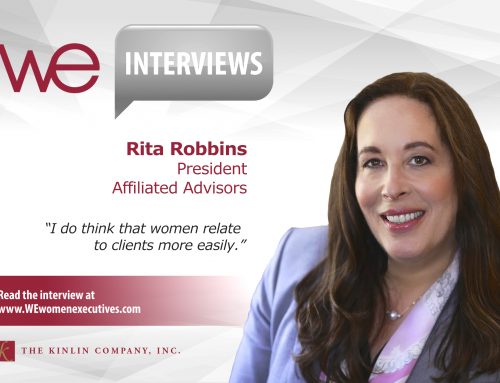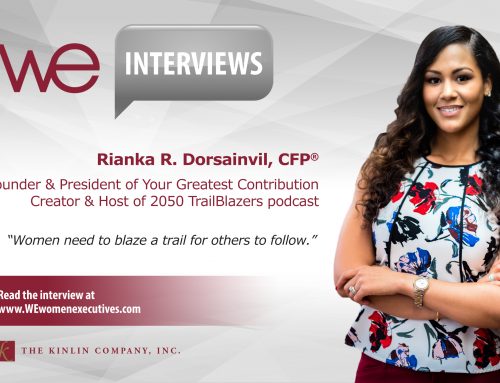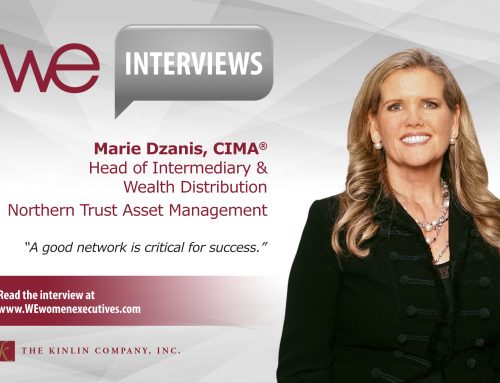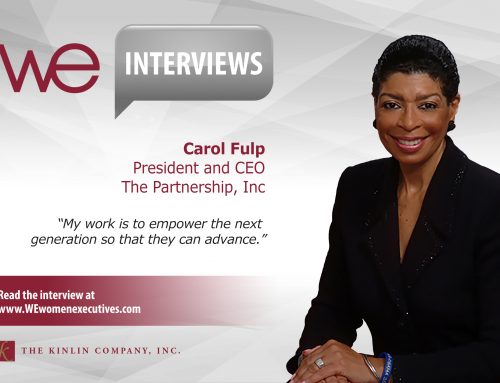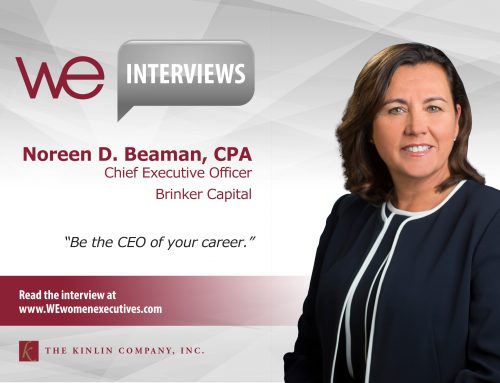Bridget Macaskill
President and CEO
First Eagle Investment Management
Bridget Macaskill, President and CEO of First Eagle Investment Management, became a pioneer of the mutual fund industry by asking a simple question: How do women relate to money? It was 1992, and Macaskill, who was then the President and COO of Oppenheimer Funds, was frustrated with the lack of research on the habits and attitudes of the woman investor.
To fill the knowledge gap, she conducted a survey of over 2,000 women and asked the participants various questions regarding how they thought about investing and money management. “The results were shocking to us,” Macaskill explained to me when we met in August. “We found that these extremely capable, intelligent, and engaged women were very intimidated by the investment process.”
Engaging Women Investors
Macaskill shared the findings of Oppenheimer’s survey with Money Magazine, who then turned it into a cover story. “That article had enormous traction. We received an avalanche of phone calls. A multitude of people and organizations, from major advisory funds to women’s clubs, wanted us to come discuss the subject of women and investing with them,” she said.
Macaskill spent the next three years dedicating part of every week to teaching women how to become savvy investors. “My main message was that they needed to engage in the investment process. There was no reason to be intimidated. And by talking with these women, I learned as much as I taught. It was an incredibly rewarding experience.”
One reason Macaskill was able to connect with her audience was because of her own personal history. “I told the women I met with that my early career was not in financial services. I came into this business knowing absolutely nothing about it. And if I could learn the industry, so could they.”
In 1995, Macaskill became CEO of Oppenheimer.
Focus on the Job
Born in London, England, Macaskill’s first job was as the personal assistant to the marketing director of a British food company. At the time, there were no women who worked on the business side of the organization, but Macaskill’s boss, recognizing her intelligence and diligence, continually expanded her responsibilities. A few years later, Macaskill became the director of marketing.
“Every single promotion I had in my life was a surprise,” she told me. “I have often been asked about my career goals but the truth is that I never set specific goals for myself. Becoming CEO of a company was never my ultimate ambition. I actually think that not having a career plan actually helped me as it allowed me to focus solely on the job at hand and do it as well as I possibly could.”
Change from Within
When Macaskill first started at Oppenheimer, there were very few senior women in the organization. By the time she left, 40% of the senior management were women. In part, she credits this change to her decision to allow people more flexibility with how they arranged their work schedule, but also because she fostered an environment that was more women-friendly.
Macaskill worked towards changing the culture by swiftly addressing moments of insensitivity that were, on occasion, displayed by male colleagues. “Sometimes in a meeting a man would say something that absolutely horrified me,” she explained. When Macaskill would question the man about his statement, she would find he often had no idea that what he said was in any way offensive.
“I always tried to bring a certain amount of humor into these moments because you don’t want to poison the atmosphere. And, in general, these men weren’t being malicious. They were just unaware of the impact of their behavior on their female colleagues.”
Macaskill contends that her seniority gave her the ability to challenge the dominate corporate culture in order to make it more conducive for women. “You can only change an organization from the inside, and you need to have women in senior positions in order to build a culture in which women want to take part.”
Your Success Depends on You
When Macaskill started working in financial services, she was not ready to conform to the prevailing culture. “When I first came to America, I was solemnly informed by my boss that I was expected to wear a navy blue pinstriped suit with one of those rosettes at my neck. I was told that’s the way women dress on Wall Street. And I thought, ‘I better leave Wall Street because this is not for me,’” she remembered, laughing.
Thankfully, things have changed since then. “There’s been a big cultural shift. Women aren’t expected to look and act like men anymore. And I think women are much more comfortable working in male-dominated environments than they used to be.”
As difficult as working in such an environment can sometimes be, Macaskill encourages women not to blame others for any lack of success. “I often say to women, ‘Your own success lies more with you than with your surroundings.’”
She continued, “Don’t waste your energy blaming somebody else. If there is real discrimination at your company that is preventing you from progressing, then you need to leave. If not, you need to be so good that your value cannot be denied.”
Selecting a Mentor
Macaskill knows the important role a mentor can play in an emerging executive’s career advancement, but she admits that finding the right match is rarely accomplished through formal mentoring programs.
“The way to choose a mentor is to find someone who you really admire, someone who has a personal style you want to emulate and a skill set that you want to develop,” she said. “Then approach the person and say, ‘I really admire the way you operate and the values you display. Would you be willing to meet with me periodically? Because I think I could learn so much from you.’”
Macaskill continued, “Most people will be so taken aback and flattered by this approach , that, with any luck, they will say yes and become your mentor.”
How Do You Define Your Life?
The most fundamental piece of advice that Macaskill gives to all the talent she mentors is to have a very clear sense of the priorities that define your life.
For Macaskill, her top priority has always been her family. “Family comes first, the job comes second, and everything else comes third. If that meant that I wasn’t able to do everything I wanted to do personally, that was my choice. I think you have to figure out what you are prepared to give up. None of us can have it all. It’s not just women. Men have to make these choices too.”
By listening to and learning from women investors, Macaskill educated financial advisors on how to better serve their female customers, she helped women get over their fear of investing, and she grew her company’s profile and client base. And as the leader of both Oppenheimer and First Eagle, she has worked to create a more woman-friendly workplace, and to attract and retain a large number of talented women.
These days, there is a growing consensus on the idea that businesses will be more competitive and successful if women are in leadership positions. For living proof of this theory, Bridget Macaskill’s thirty-year long career in financial services serves as a stellar example.


